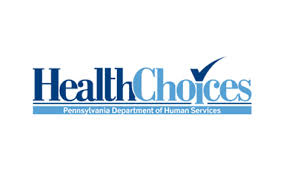HealthChoices MCO Seeks to Address Social Determinants of Health
A managed care plan that participates in Pennsylvania’s Medicaid program is slowly dipping its toe into an effort to address the social determinants of health in Philadelphia.
 United Healthcare, with 57,000 Medicaid members in the city, has placed six homeless members with multiple health problems into apartments in the city – it plans to add four more – and is spending between $1200 and $1800 a month on rent and wrapround services. Its theory: with one percent of the population accounting for 22 percent of annual health care spending nation-wide, helping some of that one percent could improve lives while saving a great deal of money.
United Healthcare, with 57,000 Medicaid members in the city, has placed six homeless members with multiple health problems into apartments in the city – it plans to add four more – and is spending between $1200 and $1800 a month on rent and wrapround services. Its theory: with one percent of the population accounting for 22 percent of annual health care spending nation-wide, helping some of that one percent could improve lives while saving a great deal of money.
Pennsylvania’s Department of Human Services has awarded nearly $9 million in grants since 2016 to groups attempting to address the social determinants of health and to help the more than 300,000 Medicaid participants in north Philadelphia.
Learn more about what United Healthcare is doing and why it is doing it in the Philadelphia Inquirer article “United Healthcare tackles homelessness as a root cause of poor health, and Philly is a test case.”
 Block grants, through what has been named the Healthy Adult Opportunity program, also pose a threat, with Fitch explaining that
Block grants, through what has been named the Healthy Adult Opportunity program, also pose a threat, with Fitch explaining that As described in The Impact, DHS’s weekly newsletter:
As described in The Impact, DHS’s weekly newsletter: In her commentary Verma rebuts these criticisms, maintaining that the proposed regulation seeks to ensure that states pay their fair share of their Medicaid partnership with the federal government, raise that share in a manner consistent with federal guidelines, and spend it in ways that fall within regulatory standards. She also maintains that the regulation will foster greater transparency and accountability for the Medicaid program.
In her commentary Verma rebuts these criticisms, maintaining that the proposed regulation seeks to ensure that states pay their fair share of their Medicaid partnership with the federal government, raise that share in a manner consistent with federal guidelines, and spend it in ways that fall within regulatory standards. She also maintains that the regulation will foster greater transparency and accountability for the Medicaid program. Under federal law, CMS must publish a notice declaring its intention to collect such data and seek input from stakeholders. For this particular notice, stakeholders have until March 9 to respond.
Under federal law, CMS must publish a notice declaring its intention to collect such data and seek input from stakeholders. For this particular notice, stakeholders have until March 9 to respond. Among the groups submitting formal comment letters to the Centers for Medicare & Medicaid Services in response to the proposed Medicaid fiscal accountability regulation was the Safety-Net Association of Pennsylvania. See SNAP’s letter
Among the groups submitting formal comment letters to the Centers for Medicare & Medicaid Services in response to the proposed Medicaid fiscal accountability regulation was the Safety-Net Association of Pennsylvania. See SNAP’s letter  The proposed budget, presented to the state legislature earlier this week, includes the following new initiatives:
The proposed budget, presented to the state legislature earlier this week, includes the following new initiatives: Included in this month’s edition are articles about:
Included in this month’s edition are articles about: In a news release, Governor Wolf said that
In a news release, Governor Wolf said that